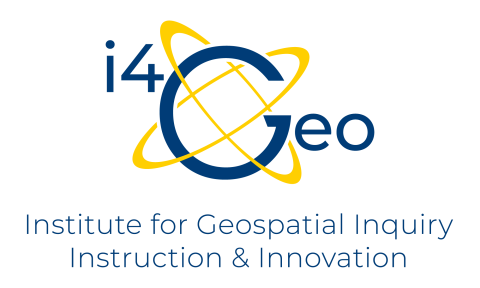
Institute for Geospatial Inquiry, Instruction and Innovation
Welcome to i4Geo

Recognizing new opportunities in geographical information science, geospatial positioning and imaging technologies, sensor networks, big data analytics, artificial intelligence, and 3D digital twins, the University of Lethbridge Institute for Geospatial Inquiry, Instruction & Innovation (i4Geo) is dedicated to meeting evolving societal needs. Our mission encompasses research, training, networking, business innovation, and community outreach, establishing us as leaders in geospatial technology and applications.
Our Vision
At i4Geo, we embrace geospatial hardware and software technologies as core elements of our approach. We aim to foster innovation, exploration, application development, and geo-economics across various domains, including environmental monitoring, natural hazard assessments, and risk mitigation.
Engagement and Inclusivity
i4Geo is committed to creating new engagement pathways from high school to post-doctorate, ensuring opportunities for students, researchers, and entrepreneurs. We prioritize removing systemic barriers based on race, religion, sexual orientation/expression, gender, nationality, health, affluence, class or age.
Multidisciplinary and Intersectoral Approach
Our institute supports a broad, multidisciplinary, and intersectoral community. By leveraging the core strengths of the Department of Geography & Environment, i4Geo provides a solid foundation for growth and innovation.
Foundational Pillars
- Academic Programs: We offer undergraduate and graduate degree programs in geography, remote sensing, environmental science, agricultural studies, geographical information science, and computer science.
- Non-Degree Training: Our Agility training programs, operated out of the Teaching Centre, and high school engagement pathways via Destination Exploration.
- Research Programs: Our geospatial and environmental research programs and partnerships led by faculty across inter-related disciplines.
- Advanced Technologies: Access to cutting-edge geospatial, environmental sensing, imaging, and online immersive technologies.
- Research and Training Spaces: Campus laboratories, airborne and field research, and training spaces.
- Entrepreneurship Support: Proposed entrepreneurship and business incubation supports to nurture innovation.
Coordination and Growth
Administered by diverse reporting units, i4Geo builds on the legacy of the Alberta Terrestrial Imaging Centre (ATIC) to coordinate, grow, and sustain cross-disciplinary and inter-sectoral goals for the next five years and beyond. We will interface with the Department of Geography & Environment and the Teaching Centre to deliver innovative geospatial technology and application programs, both within the traditional university structure and to the public through outreach and micro-credential pathways.
Campus Presence
The Faculty of Arts & Science hosts i4Geo due to historical cross-disciplinary activities between geography, physics, biological sciences, computer science, and mathematics. However, given the emerging intersection of online gaming and geospatial technologies and the associated opportunities for business innovation, we hope to expand collaborations with the Faculty of Fine Arts (new media) and the Dhillon School of Business in the future.
Our founding faculty members host research laboratories, offices, and graduate student work areas in the NW wing of the second floor of the Alberta Water and Environmental Sciences Building (AWESB). Classroom WE2034, adjacent to this area, is available for group meetings and seminars.
Objectives
Our goal is to build on our historical successes in remote sensing and imaging science. i4Geo will play a coordination and integration role for the University of Lethbridge’s research, training, and innovation across the geospatial domains of arts, science, technology, and application. Equity, diversity, inclusion, and belonging principles are central to our mission, enhancing the accessibility of geospatial technology by addressing traditional barriers.

